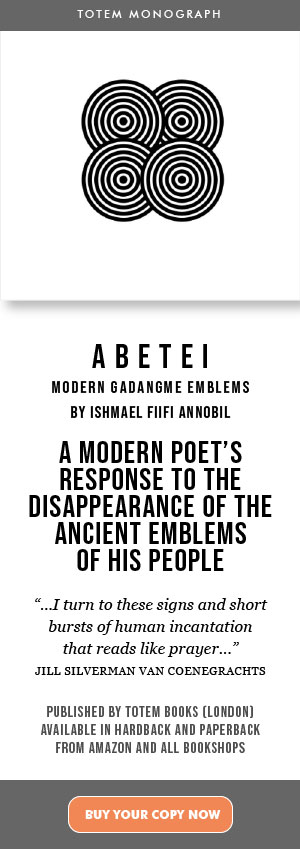The Idea of Prostitution
No of Pages: 394
Binding: Paperback
Size: 5 1/2 x 8 1/2
ISBN: 1875559655
Publisher: Spinifex Press
Reviewed by Stieve Delance
I recently decided to reorganise my home library of books, magazines and collected articles. I realised, despite there being some quite dubious ‘fluff’ amongst my collection, there were some real gems that merited me blowing off the dust and re-reading. The mish-mash of titles, ranging from Plato to Anne Rice, Jerry Adams’ autobiography to Marion Zimmer-Bradley, leaves me giggling at the possible psychological profile that may be deduced from the contents of my dusty shelves.
The source of most of my collection is a relative mystery to me; some I bought but others have just appeared, mostly left in my care by various co-occupants of shared housing over my lifetime. Of the later contingent, I have not read many. Most of my favourites are a product of required reading lists at university, most notably, The Idea of Prostitution, by Sheila Jeffreys (Spinifex Press 1997), a book that has heavily influenced my thinking on feminist issues, such as choice, economic freedoms within women’s sexual liberties, and pornography.
 Sheila Jeffreys is a noted UK Feminist and Associate Professor of Political Science at Melbourne University, and is the author of numerous writings and books on sexual politics. In this work, Jeffreys debates issues surrounding not only the practice of prostitution but also the ideology of the concept, processes and eventual outcomes within a feminist context. It sounds quite heavy, but actually it’s a pretty. It challenges concepts that I had not even considered before because I thought they were the ‘norm’.
Sheila Jeffreys is a noted UK Feminist and Associate Professor of Political Science at Melbourne University, and is the author of numerous writings and books on sexual politics. In this work, Jeffreys debates issues surrounding not only the practice of prostitution but also the ideology of the concept, processes and eventual outcomes within a feminist context. It sounds quite heavy, but actually it’s a pretty. It challenges concepts that I had not even considered before because I thought they were the ‘norm’.
The Idea of Prostitution is controversial, yet compelling. It is for me one of a few seminal works that are truly radical and have left an indelible imprint on my thinking. The book questions liberal notions about what it means to be a woman in today’s society in which certain practices are still tolerated or have been normalised, showing an underlying view of women that is entirely patriarchal and misogynous.
Jeffrey’s puts an elegant and comprehensive argument for her views and for the title of her work. She says, “Another meaning I hope to convey by the title is that an ‘idea’ is a necessary precursor to a man’s action in using a woman in prostitution.” She says she wants to eliminate the approach of men as having behaved naturally, and that their need to seek out sex was somehow biological or a fait accompli.
She says that to properly discuss the issue and practice one must first reject the terminology of the sex industry, with words like ‘client’ that had been adopted by the prostitutes rights movement, and replace them with ‘prostitute abuser’ and the noun prostitute or sex worker with ‘prostituted woman’, thus putting the onus on the abuser and perpetrator of the trade rather than the victim.
“I do not use the term Sex Work because I see it as normalising prostitution. The acceptance of the term makes it difficult to conceptualise prostitution as a form of violence, a crime against women.”
Sheila is a well-known member of the Coalition Against Trafficking in Women and an anti-porn and prostitution activist, who has paid particular attention to sex tourism in the Far East, in such places as the Philippines.
Her views are not however the only in feminist thought. Many argue that her views are anti-sex worker or condescending. Wendy McElroy the author of XXX: A Woman's Right to Pornography (St. Martin's Press, 1995) and Sexual Correctness: The Gender-Feminist Attack on Women (McFarland, 1996), says in her overview of pornography, “Anti-pornography feminists treat women who disagree as either brain- washed dupes of patriarchy or as apologists for pornographers.”
She also decries the underlying condescension in statements such as: “Although women in pornography appear to be willing, anti-porn feminists know that no psychologically healthy woman would agree to the degradation of pornography. Therefore, if agreement seems to be present, it is because the women have 'fallen in love with their own oppression' and must be rescued from themselves.”
Jeffreys does indeed argue throughout the book that all prostitutes are victims and that all who say that it is their choice are either using it as a defence and self validation mechanism of the position they find themselves in or that they are being untruthful albeit unconsciously. However, it is the intellectual feminist argument that women in the sex industry are unable to intellectualise and self analyse their own circumstances.
This is a predicament that Jeffreys herself acknowledges: “ Since some women were saying that they ‘chose’ and that they were happy with that “choice”, feminist theorists have been faced with the problem of disbelieving women.”
As a young(ish) woman who perhaps does not have the academic clout or research experience as figures such as Jeffreys and others, somehow us ordinary women who proclaim to be feminist feel that we have to take their word for it because we couldn’t possibly argue against such credentials in a referenced and informed debate, and that most of our feminist instincts are developed from ‘gut’ reactions as to what is right rather than academic pedigree.
With this in mind it is perhaps a thought that the very same women who have had to justify their ’choice’ or lack of it, despite the best protestations, lack such eloquent education and appropriate words to put an academic case for their argument. Indeed, it occurred to me to wonder what would happen if you put Jordan and Sheila Jeffreys together in the same room.
Pornography and prostitution is a clear and obvious abuse of women in my mind, but combating the ‘choice’ argument when you take it out of an impoverished third world setting is a little trickier. Fundamentally, I do agree with Jeffreys’ argument, but, the lack of tackling of both the economics of middle class prostitution and the underestimation of the women without the academic credibility who speak out in favour of their choices is a little perilous.
It is my humble view that the problem with established feminism in the Western world is that we have lost the connection between feminist thought and rationale and the very women who need it most. In the fifties and sixties young and old women alike across the social spectrum demanded access to birth control, abortion, work opportunities and equal rights legislation, which has developed over latter years. Now it feels a wee bit elitist for my liking.
While issues like the true nature of prostitution and the patriarchal systems in which women’s lives are shaped are of fundamental importance to changing women’s lives, they have themselves become academically aloof and distant from average women. If beauty magazines make me feel fat and ugly, feminist literature makes me feel too stupid and under-educated to comment on my own gender and position in life.
Photo: Modern Angels, by Ishmael Fiifi Annobil





